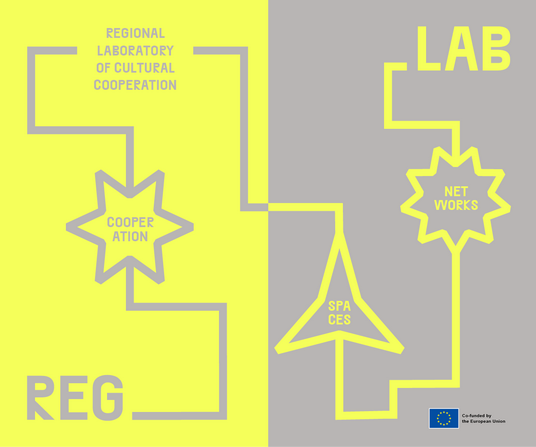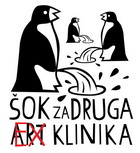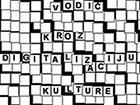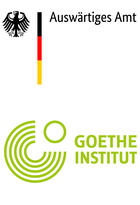A better image of a bad situation, which has become even worse

The precarious position of actors of independent cultural scenes, artists and cultural workers in the region who are tirelessly trying to survive, despite all the unfavorable circumstances of national and local cultural policies for a couple of decades, has been further aggravated in the past two years of the pandemic, as shown by the devastating data of their extensive regional, national and local surveys, protest announcements, public discussions, appeals and other actions. Forced to somehow take over the work of those who lead cultural policy - by determining the real situation and proposing immediate or long-term measures, the actors of the independent scenes are mostly faced with the silence of the authorities. The already global atmosphere of "victory" over the virus also contributes to this - which apparently leads to the conclusion that there is no longer any need for crisis measures and that returning to "normal life" is quite sufficient.
The paradox of the position of non-institutional actors in culture and art lies precisely in the abnormality of "normal" life, which only gained visibility during the pandemic, but mostly only in independent media and online discussions on social networks.
The essential problems of culture in general, and independent ones in particular, were not the topic of pre-election campaigns before the last elections in Serbia and the upcoming ones in Slovenia, although officials do not miss the opportunity to mention the record-breaking budgets.
Regional research on the life and work of cultural workers during the pandemic, implemented from May to July 2020, included more than 540 respondents in Serbia, Croatia, North Macedonia, Bosnia and Herzegovina and Slovenia, and it showed that in the first months of the crisis, the average monthly income of the respondents was halved, and that it continued to decline in the following months. During the first months of the pandemic, part of the cultural workers in the region were left without any income or with minimal income. The estimated losses during 2020 ranged from EUR 3,000 to 5,000 (in Slovenia, about EUR 8,000), which is approximately half of the respondents' total income in 2019. In Serbia, for example, in March 2020, 43.3% of respondents stated that they earned less than one hundred Euros, and in April there were already 50%.
More than a third did not have any savings, a third had less than a thousand Euros set aside for "a rainy day", while only a quarter had more than EUR 1,500. At the same time, more than half of the respondents had loans from the period before the pandemic, and more than a quarter of them had to repay more than EUR 150 per month - according to the research, which was presented in online forum “From a bad situatuin to an even worse” at the end of December 2021 by the leader of the research team Dr. Predrag Cvetičanin from the Center for Empirical Studies of Southeast European Culture (CESK) from Niš.

Many participants of regional research are forced to do additional work, in addition to artistic or cultural work. Most of them are in Montenegro (56.5%), followed by Bosnia and Herzegovina (46%), Serbia (34.3%), and North Macedonia 25.5%. The lowest number of respondents who had to have an additional business engagement is in Croatia (22.9%) and Slovenia (17.6%). For almost two-thirds (65.9%) of those who have an additional job, it brings them more than half of their total personal income.
In addition to the negative financial effects of the crisis, the research participants also pointed to problems related to artistic work, as well as the consequences of the pandemic on mental and physical health, as well as broader negative social and political effects, such as the collapse of democratic institutions, violations of human rights, censorship in to the media, said Cvetičanin at the forum, which was organized by the regional platform for culture Kooperativa, and participated by Jaka Primorac from the Institute for development and international relations (Zagreb), Luka Piškorič from Polygon (Ljubljana), Tijana Ana Spasovska from Jadro association (Skoplje), Sanja Horić from Front of freedom (Tuzla) and Granit Karagjyzi from Anibar (Peć). Research carried out on the occasion of the pandemic, which is being updated in the meantime, gives an insight into the exact extent of the impact of the cultural sector, but also points to the structural, long-term problems of the national cultural fields in the region, as well as to their common neuralgic points, which the crisis emphasized and deepened.
Response strategies to such circumstances ranged from turning to another, financially sustainable activity (a third) or securing alternative sources of income (a fifth) to a permanent change of profession and giving up the practice of art, as well as a more radical decision to leave the country.
State aid to the cultural sector in Serbia due to the consequences of the pandemic, as stated by Predrag Cvetičanin, was untimely and partial. In June 2020, 90,000 dinars (EUR 750) were allocated for about 2,350 independent artists, with an additional 60,000 dinars (EUR 500) in June 2021, and subsequent aid in the same amount in August 2021 for about 780 more independent artists, workers in culture, who were not covered by the previous measures. In addition to those approximately 3,140 freelancers, received help from the Belgrade authorities in the amount of 90,000 dinars at the beginning of the pandemic and approximately 300 part-time associates of the city's cultural institutions, but the annual competition for cultural projects in 2020 was canceled.
Art associations have pointed out a number of times that many artists and cultural workers are not covered by state aid packages, and how difficult their position is can be shown by the fact that the Solidarity Fund, launched at the initiative of several art associations and the Association of the Independent Cultural Scene of Serbia (NKSS), managed to provide in 2020 - from donors and individual solidarity payments - a one-time aid of 30,000 dinars each for 177 existentially most threatened artists, independent experts in the field of culture and other cultural workers - selected from almost 1,700 applicants.
Instead of support for economically devastated sectors due to the pandemic, including culture, the government's measures were reduced to a kind of vote-buying policy, said Cvetičanin.
The largest volume of one-time financial aid, according to the research results, was in Croatia (84.55%) and Slovenia (78.43%), and in North Macedonia (50.91%), and in Serbia (49.04%) and Montenegro (33.33%), and the smallest in Bosnia, where less than 9.8% of respondents received help. In some countries, other types of measures were available at the national level, so in Croatia, the majority of respondents took advantage of the possibility of extending the deadlines for the implementation of projects that were interrupted due to the pandemic. In Croatia and North Macedonia, a large number of respondents were paid funds for approved projects, with permission to implement them when possible, according to the results of the regional research, presented in two thematic texts by Jaka Primorac at Kulturpunkt.
Apart from the pandemic, in Croatia, as Jaka Primorac pointed out at the forum, a special problem was the consequences of the two earthquakes that hit Zagreb and Sisak in 2020. While at the national level there were certain measures to alleviate the pandemic crisis, support was absent at the local level, which for years was a very important part of public funding for culture in general - almost 40% (the City of Zagreb alone allocated 15% of the total public funding for culture in Croatia).
According to Jaka Primorac, the problem of the entire culture sector is actually its poor position in society, and a sign of improvement in the situation would be, above all, an increase in the budget for that sector.
While the pan-European organization Culture Action Europe advocates 2% for culture at the level of the European Union, in Croatia that percentage is 1.2% of the state budget. In addition, it is necessary to introduce longer-term funding sources, such as the practice of the Kultura Nova Foundation. Also, as she pointed out, it is necessary to recognize that work in culture is work that needs to be paid for. Cultural policy should promote cooperation, not competitiveness.
Culture in Slovenia also suffered the drastic consequences of the pandemic, and as Luka Piškoric from Polygon (Ljubljana) said, it was hit by another disaster - the right-wing government of Janez Janša.
This is supported by unenviable research data conducted on three occasions (spring and autumn 2020 and spring 2021) on a sample of a total of 3,454 respondents, among whom were representatives of a wide range of actors from all areas of the cultural and artistic scene, including students, cultural workers engaged on the basis of copyright contracts, self-employed in culture, independent entrepreneurs, employees in institutions, societies and cooperatives, as well as in public institutions, but also those who are not registered.
The situation is particularly unfavorable in Bosnia, which does not have a departmental Ministry for Culture, and therefore no state fund for financing culture. The situation therefore differs between entities and cantons.
The Federation of Bosnia and Herzegovina, as Sanja Horić said at the forum, not only did not adopt any support measures, but by rebalancing the budget for 2020, it abolished all funds for culture, even for cultural institutions.
Being an independent artist means actually living with your parents and waiting for them to give you some money, which the pandemic only made more difficult.
According to Sanja Horić, whose organization has worked a lot with trade unions, a particular problem in Bosnia and Herzegovina is the labor legislation, which does not recognize freelancers.
The main problem, according to her opinion, is that "each canton makes its own decisions", so the regulations differ from one to another in this respect.
The independent cultural scene in North Macedonia also suffered drastic consequences of the pandemic. Data from the regional survey, as stated by Tijana Ana Spasovska from the Jadro Association, show that in the spring of 2020, 58% of respondents were unemployed. The measures to suppress Covid had negative consequences on the work of almost 90% of respondents, since numerous programs were cancelled. More than 80% of those surveyed had financial losses, and 66% of those surveyed also felt the loss of their families.
The pandemic crisis, as stated by Predrag Cvetičanin, has shown that some sectors cannot function according to economic logic - the neoliberal concept is not possible in healthcare, education and culture. Therefore, it has become crystal clear that financing from public funds is necessary for areas of society where profit is not the primary goal. The situation in the field of culture indicates the senselessness of the cultural policy according to which 95% of the funds are spent only on the maintenance of the system of institutions (employee salaries and material costs), while crumbs remain for their programs and all other actors on the scene.
As research shows, the pandemic has also shown the importance of professional solidarity, for which there will probably be a greater need over time, since the countries in the region for now do not show a willingness to adapt cultural policies to crisis conditions. This can lead to an increased awareness of common interests and the formation of broader alliances that will try to change the situation for the better in the field of culture in the countries of the region - provided that the actors of the independent cultural scenes find the strength to survive at least for a while longer.
(SEEcult.org)
*Funded by the International Relief Fund for Organisations in Culture and Education 2021 of the German Federal Foreign Office, the Goethe-Institut and other partners, goethe.de/relieffund
Ovaj tekst nastao je u saradnji s Kooperativom – Regionalnom platformom za kulturu u sklopu projekta REG.LAB. Za sadržaj ovog teksta odgovaraju isključivo autori i partneri na projektu te on ni na koji način ne odražava mišljenje Evropske unije. Projekat je sufinansiran sredstvima Evropske unije, program Kreativna Europa (2014 – 2020), u sklopu otvorenog poziva usmerenog na jačanje kulturne saradnje i konkurentnosti kulturnih i kreativnih industrija na Zapadnom Balkanu.
Project Regional Action Lab – independent culture as engine of mutual support and exchange in times of crisis (Reg Lab) is supported by the Balkan Trust for Democracy, a project of the German Marshall Fund of the United States and the USAID.














